Economy
Wrapping Up Canadian Energy 2023 – Prosperity, Power Struggles, Pipelines, EV Promises and “Pie in the Sky” Politics
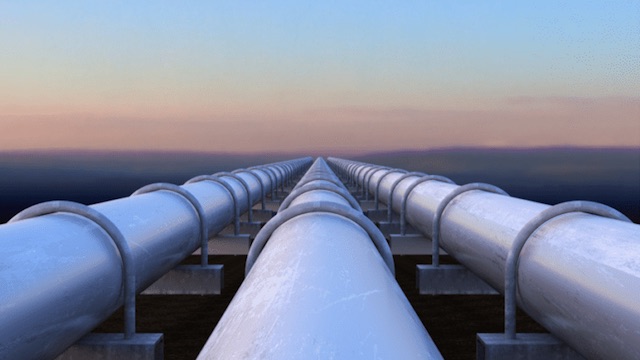
From EnergyNow Media
By Deidra Garyk
2023 was an optimistic year in the Canadian oil patch. The +15 walkway system in downtown Calgary has been buzzing with the energy of people hurrying to business meetings and networking events.
Some of those scurrying about were headed to talk multi-billion-dollar merger and acquisition (M&A) deals that the patch continued to experience throughout the year. Traditional oil companies also bought alternative energy and carbon tech companies. Carbon capture, utilization and storage (CCUS) was the investment decision of the year.
Oil and gas prices remained relatively high. Not great, but not in the toilet like the dark years of 2015 to 2021. That meant government coffers filled, easing some of the debt burden accumulated during COVID. Oil and gas companies, producers and the many service providers who support the production, were able to continue paying down debt and providing returns to patient shareholders.
Canadian majors Suncor, Cenovus, and Enbridge went through leadership changes at the top. I wish these men success and courage. They are going to need it to embolden pragmatism at all levels of government.
The Canadian federal government continues to be all-in on climate and green energy, seemingly to the exclusion of traditional, reliable energy sources. Although, since climate change has taken a backseat to affordability and energy security for the voting public – the only people politicians really care about – the Liberals have had to rebrand some programs to get buy-in.
One example is renaming the “Just Transition” the Sustainable Jobs Plan. Other than the name, not much has changed. There is still a push for unionized, non-oil and gas jobs.
The feds “invested” (their word, not mine) billions of dollars in EV battery plants, continuing to go all-in on 100 percent EV car sales in twelve years. Senior bureaucrats at Transport Canada even touted the nearness of EV heavy-duty commercial transportation and equipment. (Someone should tell them it will not work well in remote locations with no charging infrastructure.) Energy and Natural Resources Minister Jonathan Wilkinson lauded the day when agricultural equipment goes all electric, fantasizing about the economic boon that will bring. (Someone else should tell him it will not be experienced by farmers who have to spend their hard-earned dollars on equipment replacements.)
Joe Biden visited Ottawa in March. I happened to be there for a conference, so I got to experience the pomp and circumstance first-hand. I have never seen so much security, and I have travelled to places under military control and lived in a country that remains perpetually under the threat of foreign invasion.
Biden’s motorcade is a long, emissions-belching row of vehicles. I did not see any EVs. It includes two “Beasts” (one used as a decoy while the other transports the President), an ambulance, and several tricked-out SUVs. It is quite a spectacle.
As expected, topping the list of topics on the visit’s agenda, President Biden and Prime Minister Trudeau talked about energy and climate, as outlined in their joint statement.
Global sustainability reporting standards were released in June and come into effect January 1, 2024. Publicly traded companies are waiting for Canada to release jurisdiction-specific regulations to understand the magnitude of what will be required. In the Fall Economic Update, released November 22, the feds said rules will be put in place to extend mandatory climate reporting to private companies. That is a big hint at what all companies should expect, at a minimum.
You can listen to my podcast on the subject with energy analyst Dr. Tammy Nemeth here.
On the topic of climate, Bill S-243, An Act to enact the Climate-Aligned Finance Act and to make related amendments to other Acts passed second reading in the Senate in June. You may think this is just some boring Senate bill, but oil and gas boards and employees need to be aware of it.
The bill aims to restrict investment in hydrocarbons, forces companies to set climate commitments, and dictates who has to be part of a company’s board of directors. Worse, section 13(1) Appointment – restriction outlines who cannot be a board member – anyone who works in or owns shares in a fossil fuel company.
It goes as far as to include: “And whereas investment in energy efficiency, clean energy and clean technologies and the incentivization of innovation and behavioural change must replace investments in greenhouse-gas-emission-intensive activities for effective action against climate change.” It targets “fossil fuel activity” in the definition of “emissions-intensive activities”.
Alignment with climate commitments requires that companies:
- take into consideration vulnerable groups, communities and ecosystems, including the biodiversity of those ecosystems,
- make decisions based on equity and the best available science and
- do not promote, foster or exacerbate food insecurity or inequalities in society; and
- do not cause significant harm to social and environmental obligations recognized by Canada.
This bill should trouble any rational person, and it is not getting enough attention. It ramps up climate hysteria and enshrines it into all financial decision making. It is ideological to its core.
I encourage you to read the bill here.
Fortunately, two major, necessary egress projects – Coastal GasLink and Trans Mountain – are well underway before Bill S-243 can stop them. Coastal GasLink reached major milestones of 100 percent pipeline installation and mechanical completion, ahead of schedule. Unfortunately, the federally owned Trans Mountain pipeline has continued to experience delays and a cost increase to $30.9 billion. Although, it was about 80 percent complete in March and expected to be in service in the first quarter of 2024, the project has been delayed due to issues over the route and may not be completed until the end of 2024.
Canada’s summer wildfire season had environmental activists hot and bothered, blaming one thing, and one thing only – climate change!
Calgary hosted the 24th World Petroleum Congress and world energy leaders in September. The torch was passed on to Saudi Arabia to host next. Based on their booth, it will be an extravaganza that will undoubtedly proudly display their oil and gas development. Energy and Natural Resources Minister Jonathan Wilkinson dutifully kept to the Liberal’s script and was challenged to mention the words “oil” and “gas” during his speech at the World Petroleum Congress. This caused the ire of Alberta Premier Danielle Smith, who has had it with the feds’ attitude towards oil and gas.
She has now invoked the Alberta Sovereignty Act in an attempt to prevent the federal government from being able to enact the Clean Electricity Standard by 2035. She has taken a lot of heat for it, but Saskatchewan’s Premier Scott Moe did it first with the colloquially named Saskatchewan First Act. When adversarial Environment and Climate Change Canada Minister Steven Guilbeault threatened to criminalize the use of coal-fired power generation past 2030, Moe puffed out his chest and said, “come get me!”
For all the partisan naysayers attacking the Premiers, I recommend reading Electricity Canada’s response to the Clean Electricity Regulations. It is emotionless and objective, and it sides with the Premiers.
Good thing there is serious discussion about the electricity grid and reliability happening in the Edmonton Legislature because Alberta’s grid operator AESO has issued several warnings in the last year, on both hot and cold days. This has me impatiently waiting for the 2,700 megawatts of new natural gas-powered generation to come on in 2024.
November was all about the carbon tax fight. The feds doubled down on the importance of carbon taxes in the fight against global warming, but not in regions where their sitting MPs risk losing their seats (i.e. their jobs) in the next election. If you think it was not political, you are fooling yourself. They are still fighting over the applicability of a tax on farmers. As someone who eats, I would like it removed to keep the cost of food down.
Premier Moe will not charge Saskatchewan residents carbon tax on natural gas and electricity used to heat homes. This seems reasonable considering that it gets really, really, really cold in Saskatchewan for many days in the winter and reliable energy is a must.
In a hotter region of the world, Dubai, United Arab Emirates hosted COP28 in December. It is the twenty eighth UN climate conference, and yet we appear no closer to solving the thing they say is a crisis – rising emissions. The globe reached the height of emissions in 2023, even though coal use is down and renewable energy capacity and investment is up, up, up, according to the International Energy Agency.
As expected, Canada made various expensive pledges. Minister Guilbeault bounces to the podium for a photo op, drops a climate pledge or two, and the rest of us are left trying to figure out how to meet the commitment. The most contentious for Alberta and Saskatchewan was the oil and gas emissions cap that has been called a de facto production cap.
GEOPOLITICS
With energy security remaining a priority for citizens, nuclear is no longer a bad word. Countries and regions are expanding existing nuclear infrastructure and there is increasing public acceptance for small modular reactors. The false fear tactics used by the anti-nuclear activists have finally been shown for what they are – exaggerated and untrue.
The BRICS alliance expanded with the addition of six new members: Iran, Saudi Arabia, Egypt, Ethiopia, Argentina, and the United Arab Emirates.
Not only are the BRICS nations population and economic power players, they hold the keys to unlocking vast reserves of reliable energy. Total oil production from BRICS nations will be between 40-45 percent of global oil production, more than OPEC’s 35-40 percent. In addition, the members hold vast reserves of the minerals needed for any future energy transformation.
Forty other countries applied to join, demonstrating an interest in the group. Western leaders and NGOs would be wise to pay attention to the growing influence of the BRICS, even if they dislike some of the members.
BRICS is my geopolitical story of the year as it continues to disrupt global energy markets. In 2022, India increased purchases of discounted Russian oil by forty percent. This year, India purchased oil from the United Arab Emirates in rupees, their local currency. These are two examples of the shifts that are happening but are seemingly ignored by the West.
Overall, it appears that pragmatism and realism are influencing political energy decisions, and 2024 is expected to be another positive year for the Canadian oil patch.
All the best for the new year. May you enjoy peace and prosperity.
About Deidra Garyk
Deidra Garyk has been working in the Canadian energy industry for almost 20 years. She is currently the Manager, ESG & Sustainability at an oilfield service company. Prior to that, she worked in roles of varying seniority at exploration and production companies in joint venture contracts where she was responsible for working collaboratively with stakeholders to negotiate access to pipelines, compressors, plants, and batteries.
Outside of her professional commitments, Deidra is an energy advocate and thought leader who researches, writes, and speaks about energy policy and advocacy to promote balanced, honest, fact-based conversations.
Automotive
Biden’s Climate Agenda Is Running Headfirst Into A Wall Of His Own Making
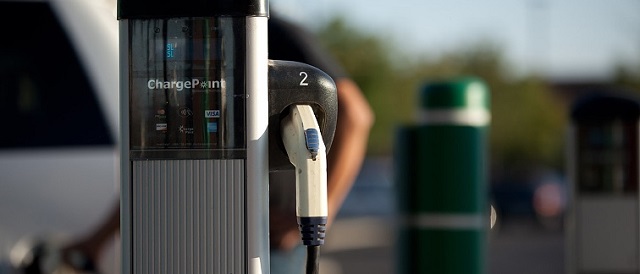
 From the Daily Caller News Foundation
From the Daily Caller News Foundation
By WILL KESSLER
President Joe Biden’s administration unveiled tariffs this week aimed at boosting domestic production of green energy technology, but the move could end up hamstringing his larger climate goals.
The tariffs announced on Tuesday quadruple levies for Chinese electric vehicles (EVs) to 100% and raise rates for certain Chinese green energy and EV components like minerals and batteries. Biden has made the transition to green energy and EVs a key part of his climate agenda, but hiking tariffs on those products to help U.S. manufacturing could jack up prices on the already costly products, slowing adoption by struggling Americans, according to experts who spoke to the DCNF.
The risks posed by hiking levies on green technology expose the inherent tension between Biden’s climate agenda and his efforts to protect American industry, which often struggles to compete with cheap foreign labor. Items on his climate agenda typically raise costs, and requiring companies to comply could make them uncompetitive on the world stage.
“These tariffs are a classic example of the Biden administration’s left hand not knowing what the right hand is doing,” E.J. Antoni, a research fellow at the Heritage Foundation’s Grover M. Hermann Center for the Federal Budget, told the DCNF. “The inability to import Chinese-made EVs due to prohibitively high costs will necessitate importing raw materials and parts for EVs from China. Since automakers can’t afford to build and assemble the vehicles here, prices will have to rise. In other words, American consumers will pay the cost of this tariff, not the Chinese.”
The White House, in its fact sheet, pointed to China artificially lowering its prices and dumping goods on the global market as the justification for the new tariffs in an effort to help protect American businesses. China has pumped huge subsidies into its own EV industry and supply lines over the past few years, spawning a European Union investigation into vehicles from the country.
“Tariffs on Chinese EVs won’t just make Chinese EVs more expensive, they will also make American EVs more expensive,” Ryan Young, senior economist at the Competitive Enterprise Institute, told the DCNF. “This is because domestic producers can now raise their prices without fear of being undercut by competitors. Good for them but bad for consumers — and for the Biden administration’s policy goal of increased EV adoption.”
Several American manufacturers are already struggling to sell EVs at a profit, with Ford losing $4.7 billion on its electric line in 2023 while selling over 72,000 of the vehicles. To ease price concerns and increase EV adoption, the Biden administration created an EV tax credit of $7,500 per vehicle, depending on where its parts are made.
The market share of EVs out of all vehicles fell in the first quarter of 2024 from 7.6% to 7.1% as consumers opted to buy cheaper traditional vehicles instead. Growth in EV sales increased by just 2.7% in the quarter, far slower than the 47% growth that the industry saw in all of 2023.
The Biden administration has also sought to use regulations to push automakers toward electrifying their offerings as consumers refuse to voluntarily adopt EVs, finalizing rules in March that effectively require around 67% of all light-duty vehicles sold after 2032 to be electric or hybrids.
“By raising the price — and thereby stunting the deployment — of EVs, the tariffs undermine the Biden administration’s stated goals of reducing carbon emissions (as many U.S. environmentalists and EV fans have recently lamented),” Clark Packard, research fellow in the Herbert A. Stiefel Center for Trade Policy Studies at the Cato Institute, wrote following the announcement. “The EV tariffs (and also-announced solar tariffs) would continue the administration’s habit of choosing politics and protectionism over their environmental agenda.”
Despite the subsidies, the 25% tariff that is currently in place for Chinese EVs already prices the product out of the U.S. market, resulting in no Chinese-branded EVs being sold in the country, according to Barron’s. Only a handful of the more than 100 EV models being sold in China appeal to American consumers, and none of them can compete under current levies.
“Something like this happened just a few years ago when former president Donald Trump enacted 25% steel tariffs in 2018,” Young told the DCNF. “Domestic steel producers raised their prices by almost exactly the amount of the tariff, and America soon had the world’s highest steel prices. As a result, car prices went up by about $200 to $300 on average. Larger trucks with more steel content increased even more. Now Biden is going to do the same thing to EVs.”
I won’t allow American towns and workers to be hurt by China’s unfair trade practices that flood our markets with cheap products.
That’s what these new tariffs are all about. pic.twitter.com/GGApGqtg7O
— President Biden (@POTUS) May 15, 2024
In the year following the increase in steel tariffs under the Trump administration, U.S. Steel’s operating profit rose 38%, prices were hiked 5 to 10% and revenue was up 15% due to reduced competition, according to CNN.
Despite the massive tariff hike on EVs, Biden only raised the tariff rate on Chinese lithium-ion EV batteries and battery parts to 25%, according to the White House. The tariff rate on certain essential minerals, like natural graphite, was also hiked to just 25%.
“Despite rapid and recent progress in U.S. onshoring, China currently controls over 80% of certain segments of the EV battery supply chain, particularly upstream nodes such as critical minerals mining, processing, and refining,” the White House wrote in its fact sheet. “Concentration of critical minerals mining and refining capacity in China leaves our supply chains vulnerable and our national security and clean energy goals at risk.”
China has broad control over the majority of minerals necessary to construct EVs, possessing nearly 90% of the world’s mineral refining capacity. Sources of the required minerals often also have serious human rights concerns, such as the world’s supply of cobalt, which has widespread ties to child labor.
Biden attacked former President Donald Trump during the 2020 election for the broad tariffs that he put on Chinese goods, noting that “any freshman econ student” could point out that the costs of the tariffs would be passed on to American consumers.
EV makers have increasingly struggled over the past year to maintain profits amid stalling demand, with the largest American EV manufacturer, Tesla, reporting a 10% drop in year-over-year revenue in the first quarter of 2024. Tesla is one of several EV makers that have announced layoffs in recent months.
“Fortunately, the EV market is still small in the U.S. and Chinese EVs are an even smaller slice of that small pie,” Antoni told the DCNF. “Even if the EV market in the U.S. were large, these tariffs would not help the domestic EV industry. While consumer demand for EVs would shift to domestic models, an increase in domestic production would rely on very expensive inputs from China, cutting into profits.”
The White House did not respond to a request to comment from the DCNF.
Business
ESG Puppeteers
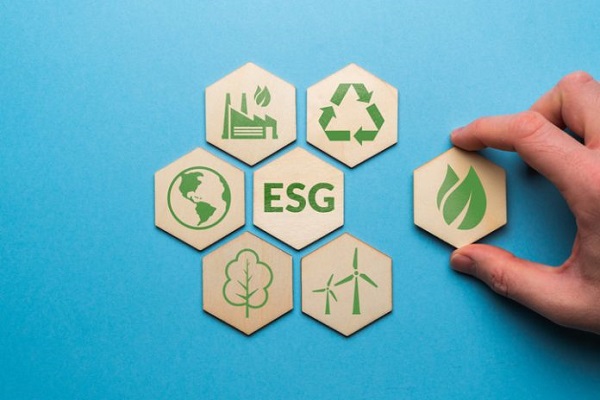
From Heartland Daily News
By Paul Mueller
The Environmental, Social, and Governance (ESG) framework allows a small group of corporate executives, financiers, government officials, and other elites, the ESG “puppeteers,” to force everyone to serve their interests. The policies they want to impose on society — renewable energy mandates, DEI programs, restricting emissions, or costly regulatory and compliance disclosures — increase everyone’s cost of living. But the puppeteers do not worry about that since they stand to gain financially from the “climate transition.”
Consider Mark Carney. After a successful career on Wall Street, he was a governor at two different central banks. Now he serves as the UN Special Envoy on Climate Action and Finance for the United Nations, which means it is his job to persuade, cajole, or bully large financial institutions to sign onto the net-zero agenda.
But Carney also has a position at one of the biggest investment firms pushing the energy transition agenda: Brookfield Asset Management. He has little reason to be concerned about the unintended consequences of his climate agenda, such as higher energy and food prices. Nor will he feel the burden his agenda imposes on hundreds of millions of people around the world.
And he is certainly not the only one. Al Gore, John Kerry, Klaus Schwab, Larry Fink, and thousands of other leaders on ESG and climate activism will weather higher prices just fine. There would be little to object to if these folks merely invested their own resources, and the resources of voluntary investors, in their climate agenda projects. But instead, they use other people’s resources, usually without their knowledge or consent, to advance their personal goals.
Even worse, they regularly use government coercion to push their agenda, which — incidentally? — redounds to their economic benefit. Brookfield Asset Management, where Mark Carney runs his own $5 billion climate fund, invests in renewable energy and climate transition projects, the demand for which is largely driven by government mandates.
For example, the National Conference of State Legislatures has long advocated “Renewable Portfolio Standards” that require state utilities to generate a certain percentage of electricity from renewable sources. The Clean Energy States Alliance tracks which states have committed to moving to 100 percent renewable energy, currently 23 states, the District of Columbia, and Puerto Rico. And then there are thousands of “State Incentives for Renewables and Efficiency.”
Behemoth hedge fund and asset manager BlackRock announced that it is acquiring a large infrastructure company, as a chance to participate in climate transition and benefit its clients financially. BlackRock leadership expects government-fueled demand for their projects, and billions of taxpayer dollars to fund the infrastructure necessary for the “climate transition.”
CEO Larry Fink has admitted, “We believe the expansion of both physical and digital infrastructure will continue to accelerate, as governments prioritize self-sufficiency and security through increased domestic industrial capacity, energy independence, and onshoring or near-shoring of critical sectors. Policymakers are only just beginning to implement once-in-a-generation financial incentives for new infrastructure technologies and projects.” [Emphasis added.]
Carney, Fink, and other climate financiers are not capitalists. They are corporatists who think the government should direct private industry. They want to work with government officials to benefit themselves and hamstring their competition. Capitalists engage in private voluntary association and exchange. They compete with other capitalists in the marketplace for consumer dollars. Success or failure falls squarely on their shoulders and the shoulders of their investors. They are subject to the desires of consumers and are rewarded for making their customers’ lives better.
Corporatists, on the other hand, are like puppeteers. Their donations influence government officials, and, in return, their funding comes out of coerced tax dollars, not voluntary exchange. Their success arises not from improving customers’ lives, but from manipulating the system. They put on a show of creating value rather than really creating value for people. In corporatism, the “public” goals of corporations matter more than the wellbeing of citizens.
But the corporatist ESG advocates are facing serious backlash too. The Texas Permanent School Fund withdrew $8.5 billion from Blackrock last week. They join almost a dozen state pensions that have withdrawn money from Blackrock management over the past few years. And last week Alabama passed legislation defunding public DEI programs. They follow in the footsteps of Florida, Texas, North Carolina, Utah, Tennessee, and others.
State attorneys general have been applying significant pressure on companies that signed on to the “net zero” pledges championed by Carney, Fink, and other ESG advocates. JPMorgan and State Street both withdrew from Climate Action 100+ in February. Major insurance companies started withdrawing from the Net-Zero Insurance Alliance in 2023.
Still, most Americans either don’t know much about ESG and its potential negative consequences on their lives or, worse, actually favour letting ESG distort the market. This must change. It’s time the ESG puppeteers found out that the “puppets” have ideas, goals, and plans of their own. Investors, taxpayers, and voters should not be manipulated and used to climate activists’ ends.
They must keep pulling back on the strings or, better yet, cut them altogether.
Paul Mueller is a Senior Research Fellow at the American Institute for Economic Research. He received his PhD in economics from George Mason University. Previously, Dr. Mueller taught at The King’s College in New York City.
Originally posted at the American Institute for Economic Research, reposted with permission.
-
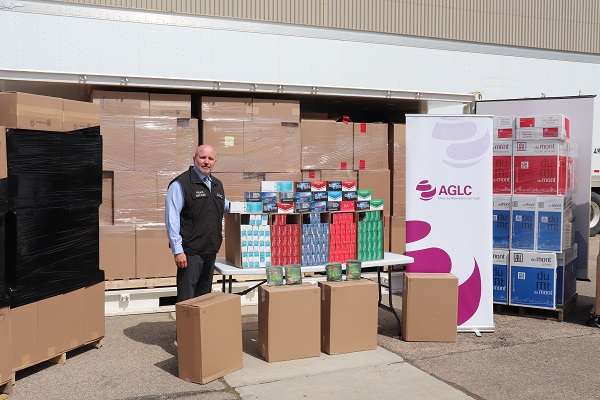
 Alberta2 days ago
Alberta2 days ago30 million contraband cigarettes valued at $25 million dollars seized in Alberta
-

 National2 days ago
National2 days agoTrudeau again blames ‘climate change’ for mostly man-made wildfires
-

 Automotive2 days ago
Automotive2 days agoGovernments in Canada accelerate EV ‘investments’ as automakers reverse course
-
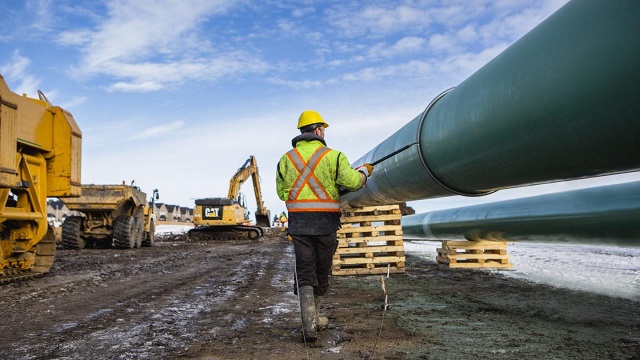
 Canadian Energy Centre2 days ago
Canadian Energy Centre2 days agoTrans Mountain completion shows victory of good faith Indigenous consultation
-

 Alberta2 days ago
Alberta2 days agoFortis et Liber: Alberta’s Future in the Canadian Federation
-
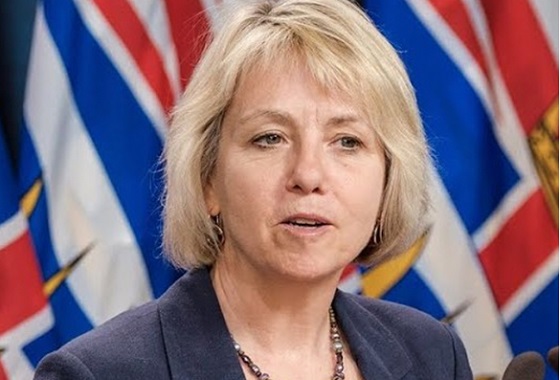
 COVID-192 days ago
COVID-192 days agoHealthcare workers obtain partial win against Bonnie Henry in BC Supreme Court
-

 COVID-192 days ago
COVID-192 days agoElon Musk-backed doctor critical of COVID response vows appeal after court sides with medical board
-

 Health2 days ago
Health2 days agoSouth Korean president declares low birth rate a ‘national emergency,’ plans new ministry to address it






